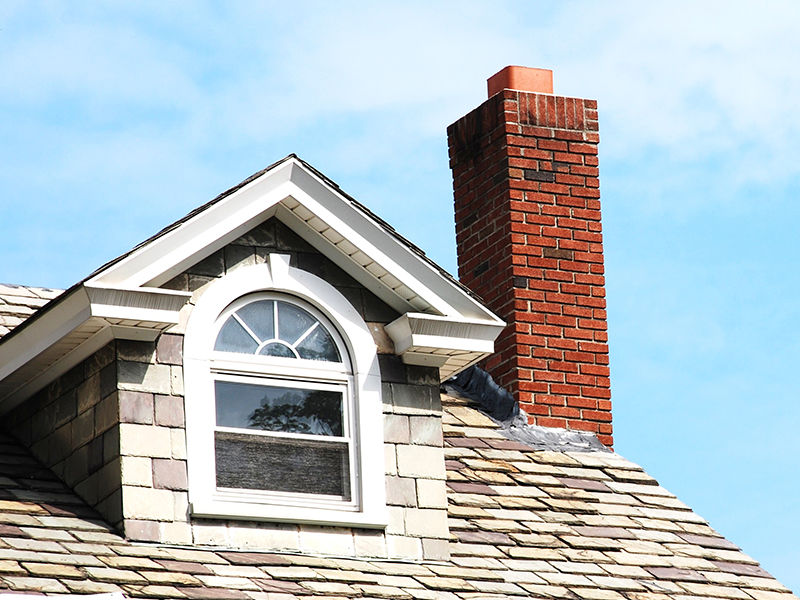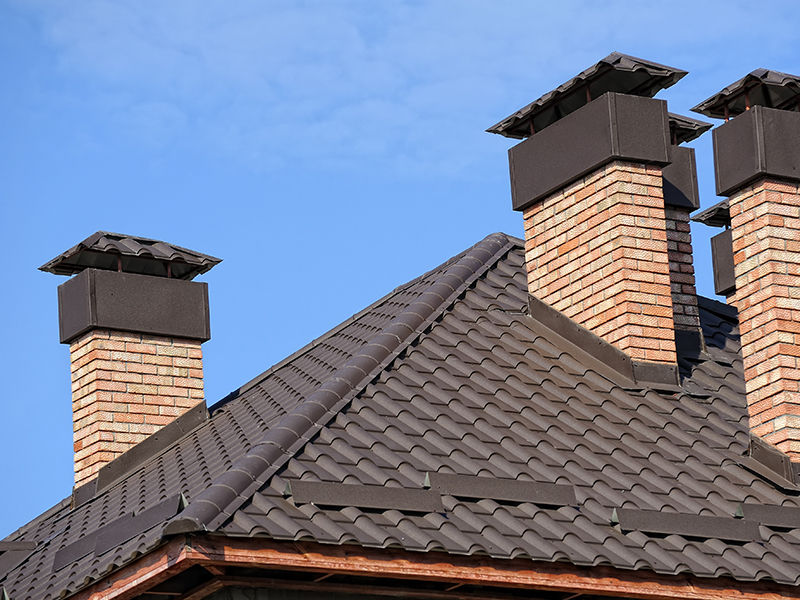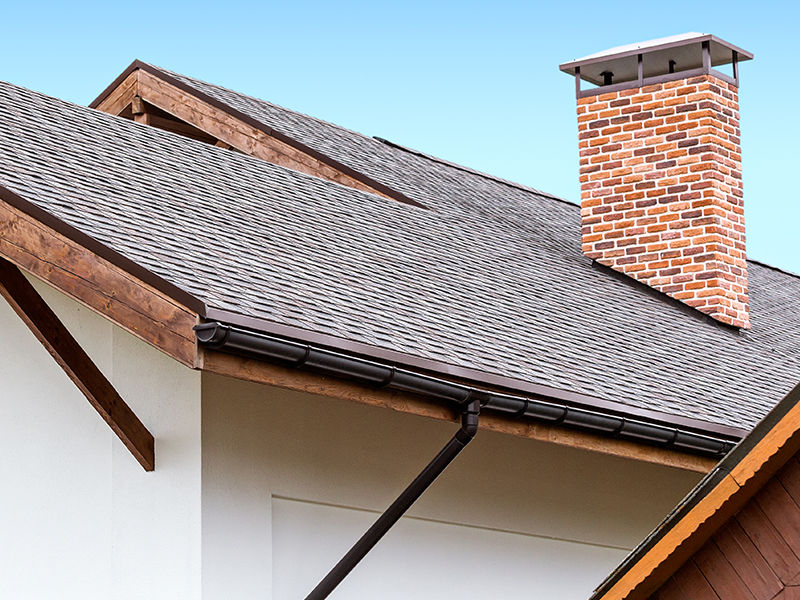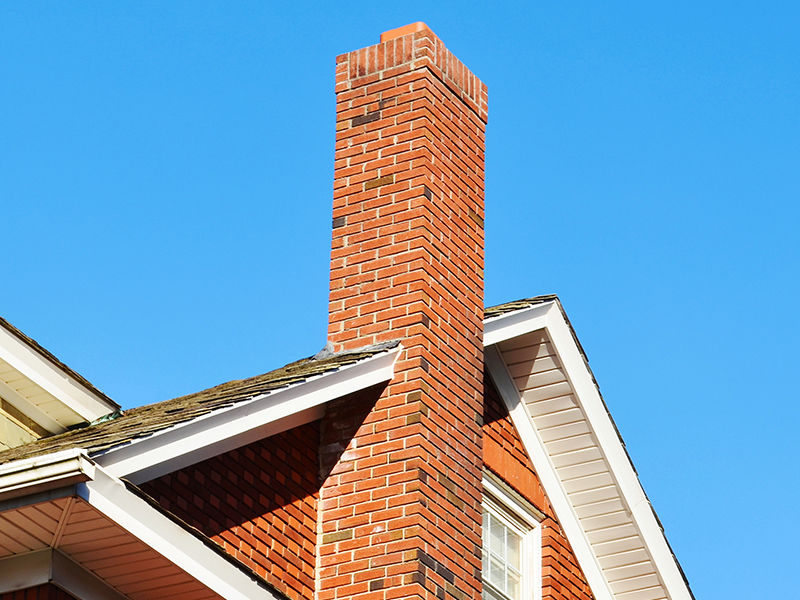FAQ's
Q. How often should my chimney be cleaned?
A. At American Chimney Service, we adhere to the National Fire Protection Association's recommendation that you have a chimney inspection once each year. Cleaning should be done as required after careful evaluation by a certified sweep. This inspection helps ensure adequate draft, a debris-free and crack-free structure, and tight mortar joints with no gaps.
Q. Are certain times of year better than others for chimney cleaning?
A. While we clean chimneys throughout the year, spring cleaning – right after the heating season is over – is best. Spring is also preferable because you won't have to wait long for an appointment, and any repairs can be more conveniently completed in the spring and summer.
Q. Briefly describe the chimney-cleaning process.
A. Most chimneys are cleaned from inside the house. This maximizes dust control and minimizes mess. The walls of the fireplace are hand-scrubbed using wire brushes. Special brushes attached to flexible poles are used to clean the chimney flue. The sweep controls the length of the pole by sliding it inside the flue as necessary. At American Chimney Service, we are meticulous in this process, and make sure our vacuums catch every possible piece of debris.
Q. Will you leave a mess in my home?
A. Actually, we leave your home exactly as we found it. Cleaning the chimney from inside your home controls any dispersion of dust. We lay out clean drop cloths in front of your fireplace, and our equipment never touches your floors. Our special vacuums collect all debris as we brush the chimney, so loose soot is immediately trapped.
Q. When you inspect a chimney, what are you evaluating and what are you looking for?
A. First, we look at what type of chimney you have. Next, we check to see if the liner is appropriate for your type of chimney and for the size of the flue. We review the kinds of fuel you burn in fireplaces, stoves and central heaters. We determine whether construction, clearances, installations, and furnace/water heater connections are code compliant...and we check to make sure you have a chimney cap.
Q. Explain why is a chimney cap important – and will it prevent my flue from venting properly?
A. Designed to code, properly fitted and sized, a chimney cap helps protect your home, preventing undesirable exterior elements from entering – rain, snow, birds and animals and debris cannot get through it. Professionally installed by American Chimney Service, the chimney cap may improve venting and can help eliminate some downdrafts.
Q. I think my damper may be damaged. Can you repair it?
A. Sometimes. If your damper is just loose or lifted off the bracket, we can probably repair it. We call this "reseating." However, if your damper is dry and cracked, or missing parts, it needs to be replaced. Our replacement dampers are air tight, and securely installed on top of the chimney flue. In closed position, your new damper will help cut heat and air conditioning loss. In open position, your new damper has a built-in cap that keeps rain, snow, animals and debris from entering
Q. What does it mean if my fireplace smokes?
A. In order to guide smoke and gases up and out through the flue, your chimney must have proper "draft." Loosely defined, draft is the pressure that forces air into the fireplace and pushes the smoke out. The strength of that push depends on the difference between the air pressures in the house and in the chimney. When your fireplace is cold – and sometimes even with a fire in it – chilly, heavy air may flow downward into the living area, creating a low draft that stops gases from exiting the chimney. This is one possible cause of "smoking" in your living area. Other possible causes of smoking require investigation by a certified chimney professional. Sometimes, smoking can be caused by a flue that is the wrong size for the appliance it serves; or by a chimney with too many bends; or by a connector pipe that is incorrectly sized or shaped. Smoking may also be the result of built-up soot or debris-clogged flues. If your house is so airtight that it restricts air exchange from the outdoors to feed the fire, this can also cause smoking. If other vents in the house allow too much air to escape, it creates low air pressure that can contribute to smoking. Smoking may also be due to an open, missing or improperly sealed clean-out door. Finally, wind blowing on your house can create negative pressure inside, and may affect the performance of your chimney.
Q. Can smoking problems be corrected?
A. If your system is smoking, have it evaluated by an American Chimney Service technician as soon as possible. Some smoking problems can be diagnosed and solved almost immediately. Your American Chimney Service certified specialist can help you eliminate flue blockages or soot buildup, install an appropriate chimney cap, if wind is causing the problem, or If your problem is a house that is sealed too tightly, give guidance on ways to increase air flow through your home. Finally, if necessary, consider installing a smoke guard – your American Chimney Service specialist can advise you on this.
Q. Educate me about chimney liners.
A. Your chimney liner plays a critical part in protecting your home from potential damage. Heat resistant and gas-tight, the most common liners are made of terra cotta. If they crack or deteriorate, heat may possibly reach your chimney"s masonry or even the wood structure of your home, exposing your home to risk. The solution? Have American Chimney Service evaluate your current liner, and if necessary, install a stainless steel or aluminum liner that will eliminate most of these concerns.




